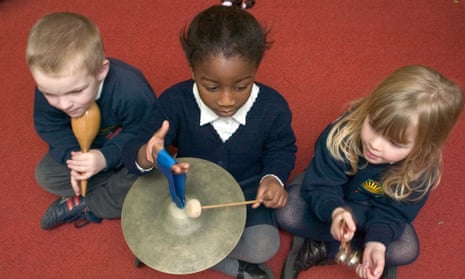Britain is the envy of the world on many levels, punching so far above its weight in the arts, broadcasting and entertainment that it is a source of great puzzlement to us (and to the outside world) why there is not more recognition of this.
On Saturday, Marin Alsop, a great champion of children’s musical education (and wonderful conductor) said at the Last Night of the Proms [watch her speech on BBC iPlayer, one hour and eight minutes in – available until 19 October]:
The power of music is to unite us and to bring out the best humanity has to offer.
Are we united in our appreciation of classical music as a nation? Even defining “classical music” is a minefield, it seems, since that field has become a prairie, and includes in it overnight successes from reality TV talent shows and children claiming to be “opera stars”.
When we lobby for critical state funding for music in schools and communities, for expert teachers trained to inspire and educate to a high level, for instruments, for time on the curriculum for singing, orchestras, swing bands, practice, private lessons, why do we do it? So that we can build our children’s future on solid foundations.
Artistic projects give many children a sense of achievement and pride, focus, self-expression; they are a way of memorising patterns, of improving public-performance confidence, of encouraging relaxation and communication, and best of all, of learning a craft. All of these skills are transferable and make us well-rounded, questioning, lateral-thinking people.
In Key Stage 4 and beyond, there is no funding to be provided by the government for children. In abandoning the arts, headteachers and school governors uninterested and ignorant of the benefits of an artistic education are doing their children a disservice, and those who do value the arts will not be receiving any funds to continue lessons. This is a national disaster unfolding. Wake up, Britain!

Here’s one way we can lobby education secretary Nicky Morgan – and it’s not a new idea to her, but she should be persuaded. If the Department for Education, with guidance from the Arts Council, were to instruct Ofsted to reward schools for their arts achievements (an “outstanding” rating couldn’t be given to a school with a poor arts programme; lower-achieving schools could also raise their profile with a strong arts programme), this would be the perfect incentive.
Indeed, it’s hard to see how it could fail. All schools are keen to improve their Ofsted rating. Arts funding is the life-blood to the arts, and the excellent music education hubs provided by the Arts Council are the lifeline to so many regions, but they receive a pittance from the government, nor are they financially self-sustaining. Ring-fencing local authority money is an option, but not currently on offer.
Professional musicians’ excellent ongoing outreach programmes by groups such as the Philharmonia, the Royal Northern Sinfonia in Gateshead, Glyndebourne and the Orchestra of the Age of Enlightenment do extraordinary work training teachers and directing projects, and they do receive some Arts Council help and lottery funds, but many areas of the country do not have access to these groups, and are in danger of becoming a cultural wasteland.
In January 2015, the Department for Culture, Media and Sport issued for the first time more detailed estimates for the creative industries showing that, in 2013, the gross value of the creative industries was almost £77bn – that’s 5% of the UK economy. It’s worth fighting for.
- Read the full text of Sarah Connolly’s speech here. Follow her on Twitter @spconnolly
